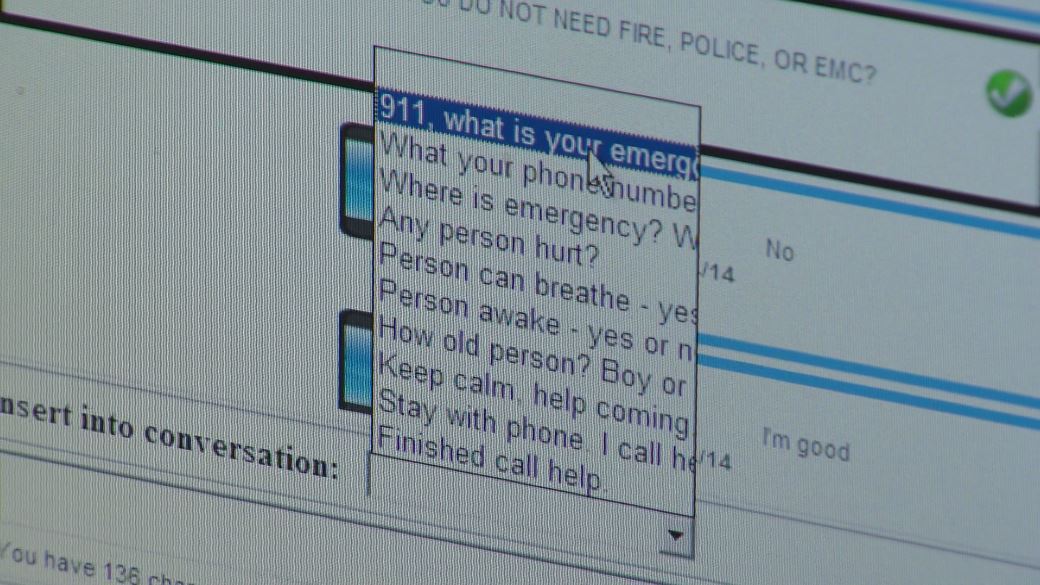HALIFAX – Nova Scotia is getting set to roll out a new service that will make it easier and faster for people who are deaf, hard of hearing or speech impaired (DHHSI) to contact 911.

Emergency call operators are receiving training on the program, which is expected to roll out across the province in January 2015.
“It’s really a service that’s complementary to the core 911 services,” said Paul Mason, director of emergency services for the Nova Scotia Emergency Measures Organization (EMO).
Currently, residents who are deaf or hard of hearing can call 911 using a landline phone through a teletypewriter (TTY). However, if they are not near a landline, they must use a relay service or contact a third person via text to call 911 on their behalf.
“If you’re at home, it’s fine. But if you’re out away from home, it’s difficult — it’s an issue,” said Frank O’Sullivan, executive director of the Society of Deaf and Hard of Hearing Nova Scotians, through an interpreter.
O’Sullivan said the community has been waiting several years for the texting option and are looking forward to its implementation.

Get daily National news
“There are many benefits,” he said. “It’s improving access, independence, safety as well (as) accommodation and equality.”
In order to qualify for text 911, people must first sign up their cellular phone numbers with the program.
During an emergency, they will still have to place a voice call into 911 in order to initiate the texting process. By calling in, operators are able to access valuable information ranging from the callers’ coordinates to their billing addresses.
Callers are encouraged to stay on the line while texting with the operator.
“For the 911 call operators it’s a big advantage for them to be able to hear what’s happening in the background,” said 911 training officer Colleen Currie.
“We’re texting back to the person but we still have that advantage of hearing background noises so we can assess if there is a scuffle happening … or something happening in the background.”
Text 911 is offered in parts of British Columbia, Alberta, Manitoba and Ontario, however, Nova Scotia will be the first province-wide jurisdiction to offer the service.
Mason said texting is just a part of their operation’s upgrades in recent years, to coincide with changes in technology and the marketplace.
“When 911 was first initiated here in Nova Scotia back in 1997, it was all landline phones,” Mason said.
“Just in the past year or so, the number of calls we receive at 911 have crossed over the 50 per cent mark for cellular phones. We’re seeing a large increase in the number of cellular calls that come through and of course this service here for texting will be cellular-based.”








Comments
Want to discuss? Please read our Commenting Policy first.